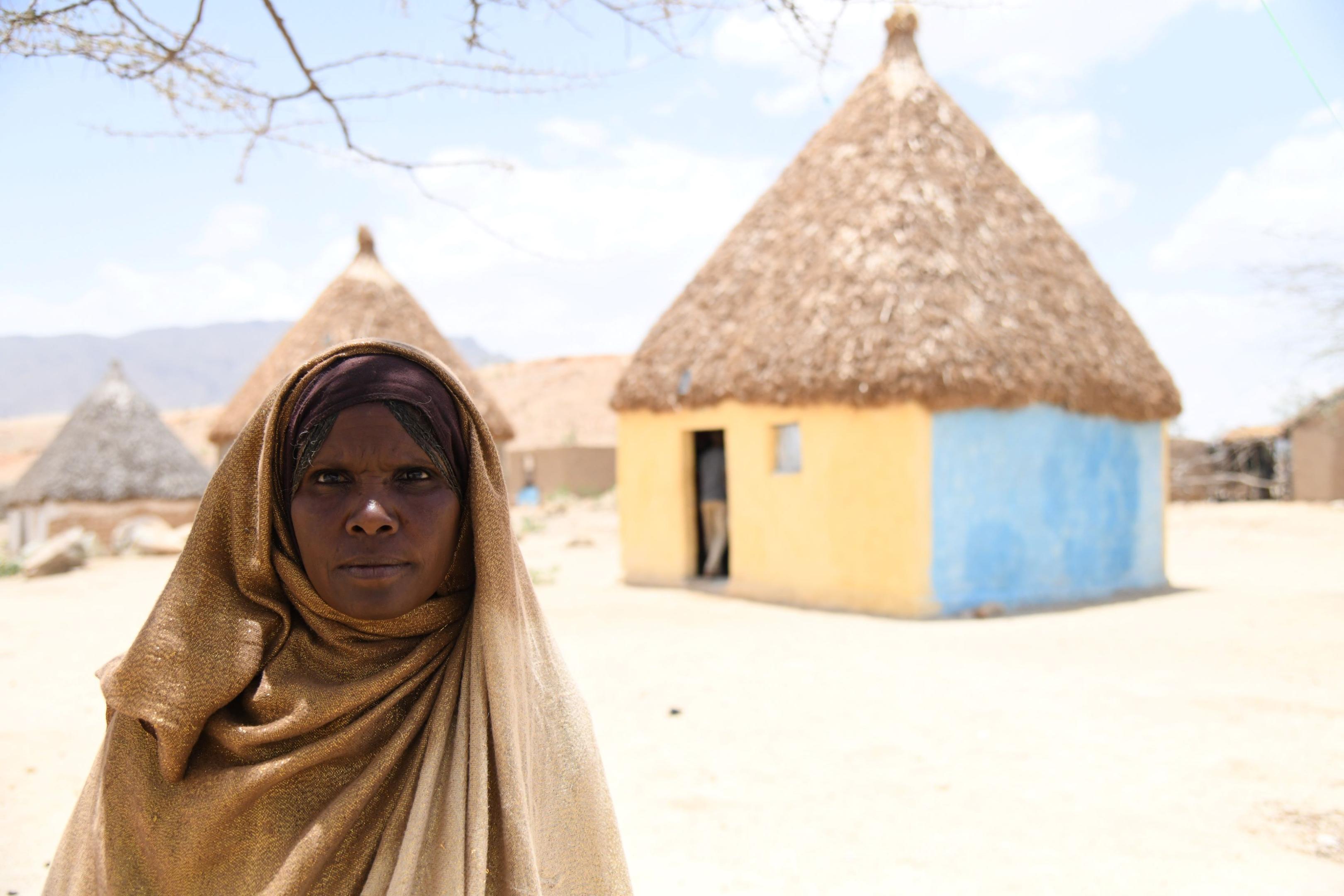At the break of dawn, as the sun casts its gentle glow upon the mountains and fields of the Habero Tsaeda subregion, Hawa steps out of her humble agdo (a traditional hut from the Anseba Region). Joining her are 30 other determined women prepared to transform their land through intense water and soil conservation activities that aim to preserve and restore ecosystems, promote sustainable land use practices, and protect water resources for the long-term well-being of both the environment and communities.
Transforming Lives and Land: Promoting Gender Equality in Sustainable Agricultural Development by Tackling Climate Change in Eritrea
May 30, 2024
Eritrea is forging ahead in its mission to address the pressing need for sustainable natural resources management, especially in the face of climate change. This progress is not just a statistic. It's a testament to the empowerment of women and the strengthening of livelihoods, which are making a tangible difference in the lives of local communities.
This transformative initiative supported by UNDP has been implemented for the past two years in Eritrea's Anseba, Northern Red Sea, and Southern Red Sea regions. It aims to immediately improve the lives of smallholder subsistence farmers who have been heavily impacted by climate change while simultaneously rehabilitating and conservating degraded lands.
At the core of this project lies a deep commitment to investing in natural resources management and social protection, which fosters sustainable and resilient socio-economic development. By adopting a holistic approach, the Ministry of Agriculture, with support from UNDP and CERF, aims to promote socio-economic well-being, enhance resilience, protect the environment, and promote gender equality.

Hillside terracing to protect upper catchment areas of the area of the Habero Tseada, in the Anseba Subregion, Eritrea.
This programme is not just a standalone effort. It is a strategic alignment with Eritrea's national development priorities; and a dedicated contribution to several UN Sustainable Development Goals (SDGs), including poverty eradication, gender equality, employment opportunities, climate change mitigation, and the protection of terrestrial ecosystems. By doing so, it is paving the way for a sustainable future, ensuring that the seeds of progress are sown for generations to come.
The impact of this important community work can be seen through the tangible actions taken on the ground. Through extensive consultation and careful identification of sites and beneficiaries, soil and water conservation activities were successfully conducted in 90 subzone sites across the project area. These activities have led to the restoration of an impressive 6,100 hectares of land and directly benefited 16,065 households actively participating in various soil and water conservation activities.
One inspiring example is Hawa Idris Ismael, a single mother of 10 children who resides in the Habero Tsaeda administrative area, comprising six villages in the Habero sub-zone.
Her day typically starts at 6 a.m. and ends at 10 a.m., leading and working on the land with other trained women. She dedicates her little free time to her children. Hawa represents the reality of many women heads of household in Habero Tsaeda and demonstrates their dedication to creating positive change in their communities.
"One of the most pressing challenges faced by the community is the scarcity of clean and safe water, which is also due to a shortage of rain." Hawa highlights the significant obstacle posed by the extremely salty water source, making access to clean water a daily struggle.

Hawa Idris Ismael - a resident of the Habero Tsaeda administrative area.
It is truly remarkable to witness the unwavering hope, resilience, and positivity displayed by the women in these areas. Despite the challenges of limited agricultural options due to drought, they persevere and play a pivotal role in land and water conservation. These women inspire team leaders in working groups dedicated to rehabilitating degraded lands and ensuring the sustainable use of available resources. Their tireless efforts embody the spirit of hope, resilience, and positivity, impacting their communities and the environment.
Closer to Hawa’s village, Habero Tselim, under the administration of Usman Ali Mohamud, is also making significant progress in implementing land and water conservation activities.

Usman Ali Mohamud, Administrator of the Habero Tselim, administrative area.
The Administrator highlighted several notable achievements from this initiative: According to him, “The residents have come together to contribute to the development of their village, fostering a sense of unity and collaboration among the community members to restore their land."
Moreover, Habero Tselim has recently transformed in terms of water availability. The village now benefits from a new source of clean water that flows through the springs. The dam's infrastructure ensures a steady and reliable water supply for the village, supporting domestic use. This natural advantage provides opportunities for the villagers to engage in farming and benefit from their land's fertility.
UNDP remains committed to continued partnership with the State of Eritrea to ensure that vulnerable people affected by adverse climate change are not left behind. The goal is to enhance their resilience and adaptive capacities while reducing their vulnerabilities to climate change's evolving risks and impacts. By placing a strong emphasis on women's empowerment and the unwavering commitment of the local community, smallholder farmers are actively taking ownership of preserving and restoring their land, thus safeguarding it from degradation and securing a more promising future.

 Locations
Locations


